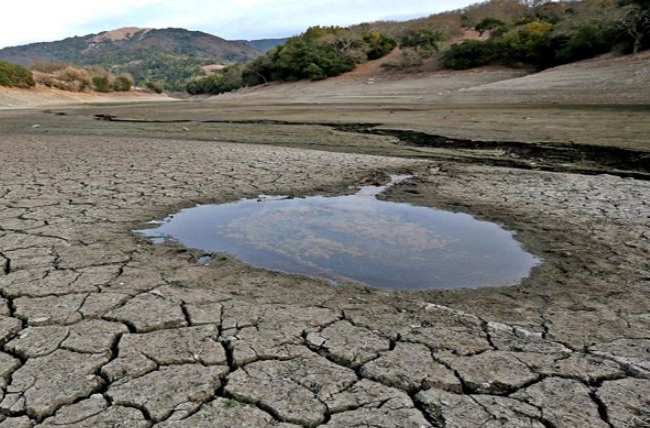Though Pakistan has dropped from 5th most vulnerable to climate change countries to 8th position but groundwater aquifer is getting depleted faster than it can be replenished during extreme climate events. A report prepared by the Irrigation Department of Punjab revealed.
The reporter further said, “The Global Climate Risk Index analyses the quantified impacts of extreme weather events”. Owing to the environment-friendly policies, Pakistan has dropped from the 5th most vulnerable country to the 8th position. In terms of the hydrological cycle, climate change affects water resources including groundwater balance. NASA studied 37 of the largest aquifers in the World between 2003 and 2013 and found the Indus Basin aquifer the second most overstressed and being depleted without getting recharged, the report reads.
Climate change has resulted in a considerable increase in the frequency and intensity of extreme weather events, coupled with erratic monsoon rains causing frequent and intense floods and droughts, the projected recession of the Hindu Kush, Karakoram-Himalayan (HKH) glaciers due to Global warming and carbon soot deposits from Trans-boundary pollution sources threatening water inflows into the Indus River System.
Climate change threats also include the increased situation of major dams caused by more frequent and intense floods, an increase in the formation of Glacial Lakes Outburst Floods (GLOF) rising temperatures resulting in enhances heat and water-stressed conditions, leading to reduced agricultural productivity.
Due to Climate change, the average annual water availability has declined from 145.20 to 124.90 MAF during the year 1976 to 2020. This has led to a big pressure on the groundwater of the Province. Recent surveys indicate that over-abstraction has led to the falling of groundwater to lower than critical limits in seven districts of Punjab including Lahore, Vehari, Multan, Lodhran, Pakpattan, and Sahiwal.
According to the survey conducted by the Punjab irrigation Department, the area with a groundwater level greater than 80 feet in the year 2010 was 52.65 Km2. The situation has become worsened and areas have increased to 670.58 Km and 1868.64 Km in the year 2015 and 2020 respectively.
Police, regulations, and institutional development in the water sector have always been ignored which needs to be prioritized for the management of depleting water resources.
The government of Punjab has developed the “Punjab Water Policy 2018” which is being implemented. In continuation to ensure sustainable management and protection of water resources of Punjab. Punjab Water Act 2019 has been enacted.
Under this Act, new Institutions like Punjab Water Resources Commission (PWRC) and Punjab Water Services Regularity Authority (PWSRA) are being set up. PWRC will ensure water conservation, redistribution, and allocation of water resources for domestic, agricultural, ecological, industrial, or other purposes. Similarly, PWSRA will ensure that water and sewerage undertakers discharge duties and perform functions as per the provision of the Water Act. In line with that, Water Resources Zone has been established for groundwater monitoring and management in Punjab.










